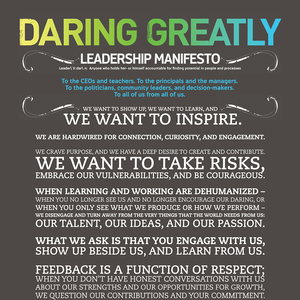
It is no doubt true for you too. It doesn’t take too much effort to recall examples of leaders with an unchecked ego. And the resulting chaos that can arise from that.
This short, but interesting article from HBR discusses how Ego is the Enemy of Good Leadership. In part it says:
An inflated ego also corrupts our behavior. When we believe we’re the sole architects of our success, we tend to be ruder, more selfish, and more likely to interrupt others. This is especially true in the face of setbacks and criticism. In this way, an inflated ego prevents us from learning from our mistakes and creates a defensive wall that makes it difficult to appreciate the rich lessons we glean from failure.
Self awareness is key to identifying this behaviour. Also, that there is a willingness to want to behave differently. For many leaders, the power and status that comes with the role is EXACTLY why they wanted such a role in the first place.
Increasingly however, times are a changing. Organisations are realising that the unchecked egos can do more harm than good. That the chaos they bring can often linger long after they have moved onto their next role. And that the old paradigm of leadership characteristics is changing, hopefully for good.
SOME THINGS TO PONDER
- If you suspect ego might be something that is following you around, consider the impact of that ego in the context of the HBR article.
- Here are some clues:
- Do you believe you’re always right? Do you easily take feedback on board? How to you deal with failure; yours and others? Do you take input from a wide range of sources before coming to a decision?
- Undertaking a 360 degree feedback process or even a really good personality profiling and debrief can give you some clues as to whether this might be an issue for you, and how it may potentially derail your career going forward.
- And if it is someone in your team? Actively work with them to help them see how ultimately the ego driven approach won’t get them where they want to go. Individual or team coaching can be a useful tool to help this process.
- Other ideas from the HBR article include practising humility and gratitude, hire smart(er) people than you, and consider what perks of the role you could actually do without.
WANT MORE?
- Watch: The Other Side of Ego (TED talk – 1.5 million views). This is really worth a watch.
- Read: The No 1 Reason Leaders Fall Short: Ego
AND MORE STILL ?
If the above has whetted your appetite, and you’re keen for more.. Here are some ideas:
Does leadership interest you? You can sign up to my FREE seven day “Be a Better Boss Challenge” by clicking here. You can click here to buy my book.
Want to chat? Click here to get in touch.
Want some help in meeting your goals for the new financial year? Sign up to the permission to dream programme, by clicking here.
Want more to read? You can read any of the 300+ blog posts on this site, by clicking here. And if you’d like to read posts specifically on leadership, you can click here.
See you soon,

With thanks to Brene Brown for the use of her Leadership Manifesto.

